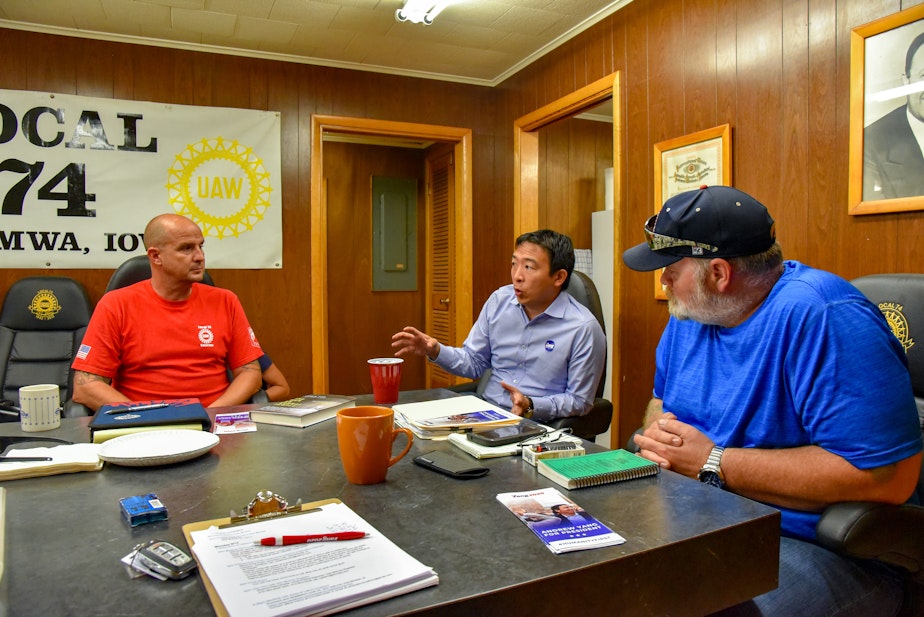Presidential candidate Andrew Yang hits Seattle to propose a national Amazon tax

Entrepreneur and philanthropist Andrew Yang says America needs a guaranteed Universal Basic Income of $1,000 dollars a month, and he wants big tech companies like Amazon to pay for it.
He'll make his case on Friday night in Seattle at Gas Works Park.
Yang says Donald Trump became president by exploiting job losses caused by automation, particularly in states like Pennsylvania and Michigan.
“By 2015, automation had already destroyed 4 million manufacturing jobs," says Yang's campaign website. "The smartest people in the world now predict that a third of all working Americans will lose their job to automation in the next 12 years.”
To offset those job losses, Yang says we need a universal basic income of $1,000 dollars a month. Yang sees the concept as similar to Social Security, in that everyone would receive it.
The idea is also modeled after Alaska's Permanent Fund, which Yang described as “wildly popular in a conservative state,” in an interview with George Stephanopoulos.
But Alaska taps into state oil revenue to pay for its fund, whereas Yang wants a "value added tax" that targets big tech companies like Amazon.
“Who are going to be the biggest winners from A.I. and new technologies?" Yang said. "It's going to be Amazon, Google, Facebook, and we all can see that Amazon paid zero in federal taxes last year."
Yang’s campaign website lists four pots of money to come with the trillions needed to fund the plan:
1.
Current spending. We currently spend between $500 and $600 billion a year on welfare programs, food stamps and disability. This reduces the cost of universal basic income because people already receiving benefits would have a choice but would be ineligible to receive the full $1,000 in addition to current benefits.
2.
A VAT, or "value added tax." Our economy is now incredibly vast at $19 trillion, up $4 trillion in the last 10 years alone. A VAT at half the European level would generate $800 billion in new revenue. A VAT will become more and more important as technology improves because you cannot collect income tax from robots or software.
3.
New revenue. Putting money into the hands of American consumers would grow the economy. The Roosevelt Institute projected that the economy would grow by approximately $2.5 trillion and create 4.6 million new jobs. This would generate approximately $500 to $600 billion in new revenue from economic growth and activity.
4.
We currently spend over $1 trillion on health care, incarceration, homelessness services, etc.
We would save $100 to $200 billion as people would take better care of themselves and avoid the emergency room, jail, and the street and would generally be more functional. Universal basic income would pay for itself by helping people avoid these institutions, which is when our costs shoot up. Some studies have shown that $1 to a poor parent would result in up to $7 in cost-savings and economic growth.




